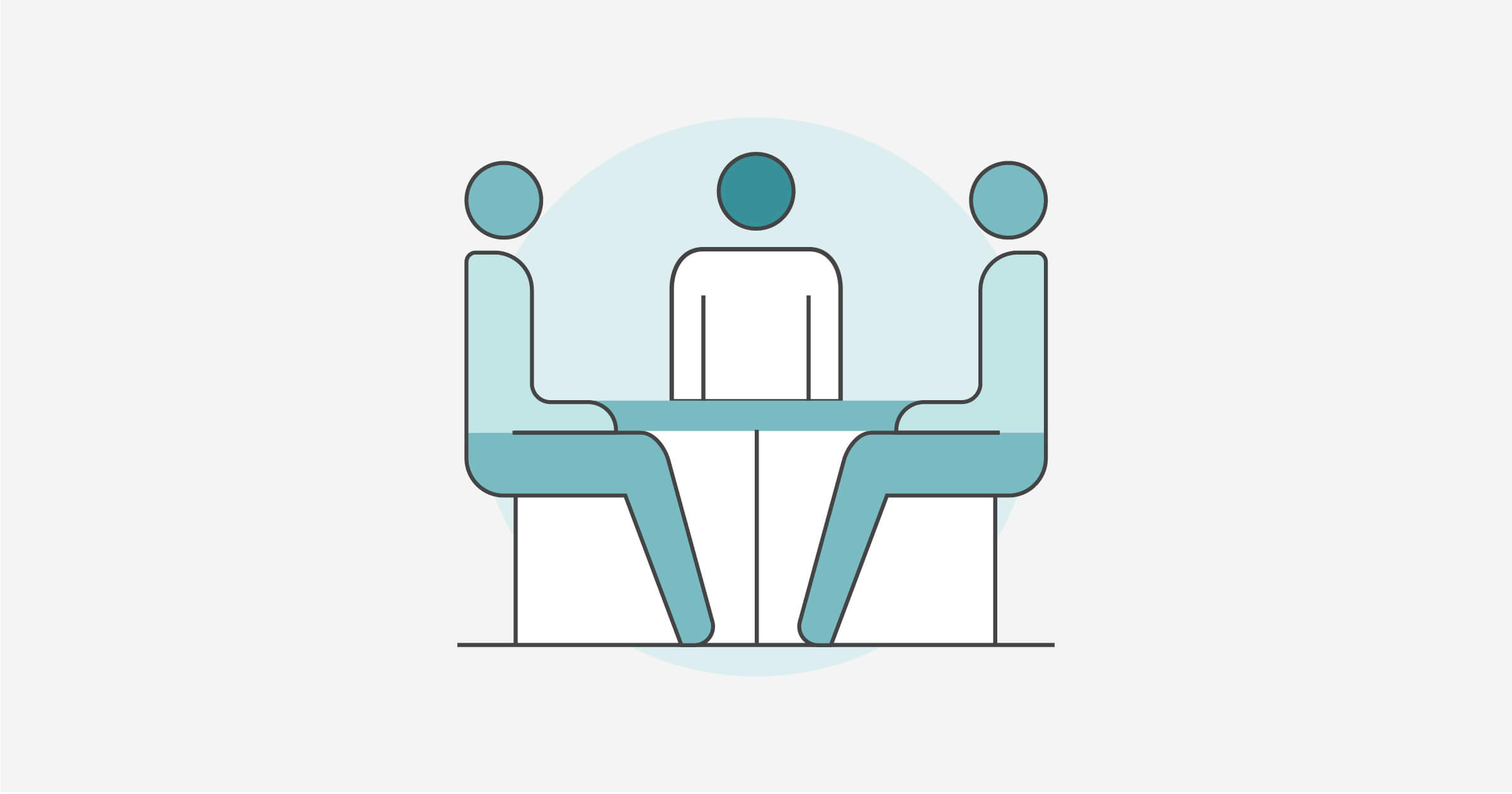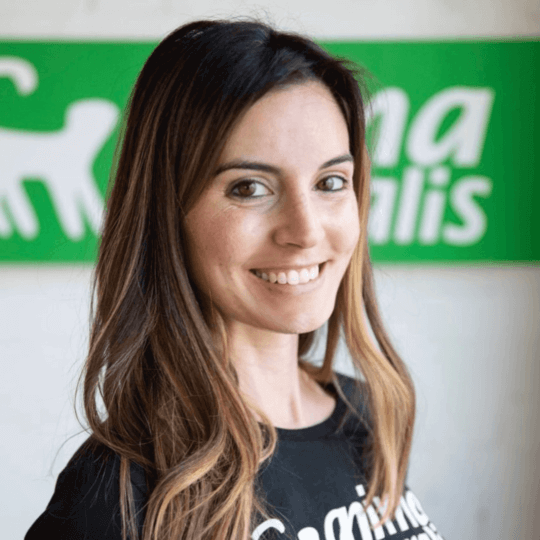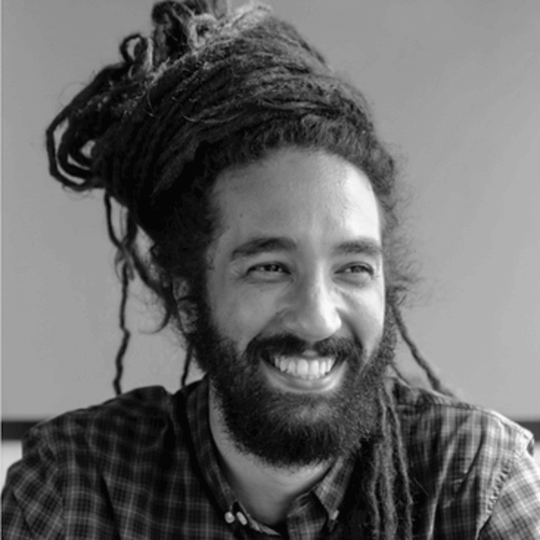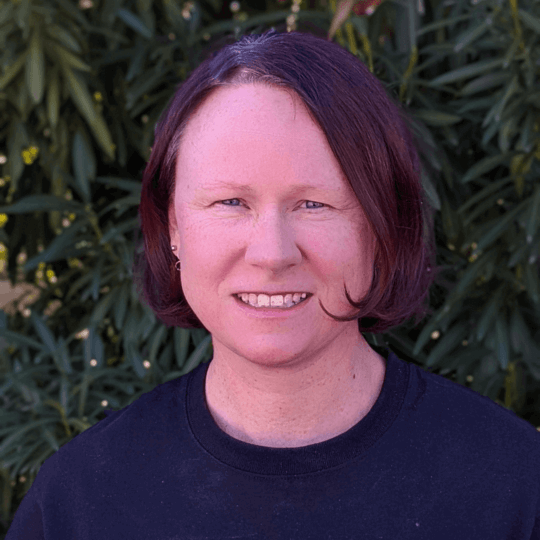
Roundtable: How Can Advocates Manage or Avoid Compassion Fatigue?
Introduction
In our Roundtable blog series, we ask a handful of contributors to provide their points of view on complex topics or unsettled questions. We hope this approach will help us integrate and learn from multiple perspectives on animal advocacy.
Animal advocates work vigorously on the front lines of animal protection, leading undercover investigations, communicating painful stories, attending vigils outside slaughterhouses, and much more. Their passion is undeniable. And while workers and volunteers doing this important work can feel tremendously rewarded, after some time, they may become withdrawn and despondent due to the trauma and suffering they’ve witnessed. This is known as compassion fatigue, which renowned scholar and trauma psychologist Dr. Charles Figley defines as “emotional exhaustion caused by the stress of caring for traumatized or suffering animals or people.” Advocates can experience a wide range of emotions, such as insomnia, dissatisfaction, and emotional numbness. So, how can advocates manage or avoid compassion fatigue? We asked four professionals in the animal advocacy space to give their advice.
Thank you to the following people for contributing to this post:
- Luiza Schneider, Mercy For Animals
- Cristina Ibáñez García, AnimaNaturalis
- Seb Alex, Middle East Vegan Society
- Amber Nelson, Compassion in World Farming USA
Each of our contributors offers a wealth of experience and a unique perspective. Luiza works with the investigations team to expose animal cruelty inside the factory farming industry. Having studied law in Spain, Cristina uses her studies to defend animals in court. Seb left his corporate job to dedicate his life to animal rights advocacy. Lastly, Amber supports her team and organization by focusing on organizational strength.
We encourage you to discuss our contributors’ thoughts—and share your own—in the comments!
Note: Some contributions have been edited for length and clarity.
Luiza Schneider
Global Vice President of Investigations for Mercy For Animals

Luiza Schneider serves as Global Vice President of Investigations at Mercy For Animals (MFA). She works with the investigations team to expose animal cruelty inside the factory farming industry. Luiza joined MFA in 2017, managing and conducting investigations in Brazil. She previously worked as an animal welfare expert and inspector for several years, visiting and reporting animal abuse at hundreds of slaughterhouses, factory farms, puppy mills, and vivisection labs.
One of our best qualities as advocates is that we are extremely empathetic people, which means we see suffering out there and care. On top of that, most of the causes we advocate for have a strong sense of urgency. This can often lead to anxiety, anger, sadness, and other feelings that, if not managed, can seriously impact our mental health. So I would say that the first thing we can do about compassion fatigue is to be mindful of it. Knowing ourselves and our limits is, in my opinion, the most important step and something we should constantly check on. We can work on developing our own coping mechanisms, identifying when we need help or professional support, or recognizing when and how we need to improve self-care. I believe that if we’re able to practice mindful compassion and turn our empathy into action, we have immense power to make the world a better place and possibly find our individual happiness and fulfillment along the way.
“Knowing ourselves and our limits is, in my opinion, the most important step and something we should constantly check on.”
Great steps to add to our daily self-care routines are exercising, eating healthy, sleeping well, maintaining work-life balance, and practicing mindfulness. But more important than following these steps is to develop a mindset of understanding why they are important for us and for the causes we promote. Other practices I find helpful are valuing the “happy little things” in my daily life by being fully present and enjoying moments like the morning walks with my dogs at the beach (which helps me recharge for a busy workday), allowing myself to unplug, and limiting social media and the news when I need mental space. It’s also important to be compassionate toward yourself. Not every day is great. Tomorrow we can try again, but be persistent because by taking care of ourselves, we are also standing up for our causes.
As someone who works with frontline teams, I can say that we will hardly find ourselves prepared enough for some of the abuse we witness. So we need to build up our resilience and develop our own coping mechanisms. One of my coping mechanisms is to focus on what I can do instead of the things I have no control of. Also, each individual has their own level of resilience, so probably the first and most important thing to do is to be honest with yourself about your limits. Question whether you see yourself doing the work you are willing to do, whether this is the right moment in your life, and whether you have the energy and the resources to take care of yourself and maintain your mental health. And if you feel the answer is yes, you can trust that, although not easy, this can be the most rewarding job you can have. Exposing the extreme suffering farmed animals endure is certainly one of the most powerful tools to create a positive impact for animals.
Many great resources are available online. I will list some I personally find helpful, but keep in mind that they are mostly focused on helping prevent the effects of compassion fatigue. Seeking professional support is always an important additional step. Also, ensuring our organizations are committed to providing a healthy work environment and effective support for self-care and mental health is crucial for us advocates.
Online Resources
In Defense of Animals, Sustainable Activism
Develop Your Self-Care Plan
Free Mindfulness Apps
Guided Meditations
Sustainable Vegan Advocacy
Be Well with Brialle
The 10 Minute Mind
Cristina Ibáñez García
U.S. HR and Operations Manager for Compassion in World Farming USA

Passionate about animals for as long as she can remember, Cristina soon understood that hugging some and eating others was wrong. She studied law in Spain and, despite not liking the field, decided to apply her studies to where she knew she could really make a difference: defending animals in court. Cristina reports all cases of animal abuse that she is aware of. In her words, “I will never stop defending those who have no voice.”
We [animal advocates] were born with an extreme sensitivity to animal suffering. For many years, I thought that loving them so much and empathizing with their pain was a curse, until I decided to turn it into a fight, into passion, into strength—to try to make this world a less terrible place for animals.
“For many years, I thought that loving them so much and empathizing with their pain was a curse, until I decided to turn it into a fight, into passion, into strength—to try to make this world a less terrible place for animals.”
You could say that [animal advocates] carry research in our DNA; we can’t look the other way. Exposing cruelty is essential to us, and we have a firm commitment to animals and exposing what the livestock industry does not want to be known. But we must be prepared to endure those pleading looks from animals that break our hearts into a thousand pieces. It is very important for us to rest well and eat well. Animals need us to be strong, awake, and alert.
While conducting investigations, I fondly remember my colleagues with a thermos of coffee in the car to be able to endure so many nights of sadness and hard work. There are nights when no images are captured, which means it can take several nights of work to get a single, good image. An investigation normally takes about a month, sometimes with only three nights’ rest.
Once inside, in hell itself, we only think of one thing: to document everything with the respect that the lives of these animals deserve, knowing that, even if it breaks our hearts, it is the most valuable thing we can do so that all that suffering is not forgotten and that their looks of terror are not anonymous. In silence and with great concentration, we get to work. The smell of ammonia from their own excrement fills the air of the enclosure in which their sad lives unfold. Some animals’ growth is so artificially fast that many collapse to the ground, never to get up again.
When we leave the farm, we go to the lodge, shower if we have any strength left, and try to sleep, knowing that a new day awaits us. Many of the animals we saw will no longer be alive the next day. It only comforts us to know that thanks to those images, some people will wake up and stop looking the other way.
Unfortunately, the current labeling of meat products does not reflect the treatment animals are subjected to before reaching the supermarket. No matter how much the meat industry tries to avoid it, consumers have the right to know what farmed animals endure in order to make informed decisions. The right to information should be something basic and protected.
Animals trembling with fear, terrified in terrible conditions. I will never forget those images. How do we do it? If we had not been there, there is a reality that would still be hidden.
Seb Alex
Campaign Management and Lectures for Middle Eastern Vegan Society

Born and raised in Lebanon, Seb Alex moved to Europe to pursue a career in sustainable architecture. Having worked with a United Nations refugee program for a year, he entered the corporate world as an international project coordinator for an architecture company in Barcelona. A year later, he decided to leave his corporate life behind and dedicate all his time to animal rights advocacy. Seb has now given animal rights advocacy workshops to over 1,300 activists across Europe, the Middle East, and Australia. He also helped launch the world’s first animal rights and vegan support center and published the free e-book “When Animal Rights and Logic Meet” in 20 languages.
I believe it’s very important to be well-educated and informed about plant-based diets and the best ways to ensure that we get all the necessary nutrients for our bodies. The more I learn about nutrition, the more I realize the impact it can have on our bodies and minds. Two other important things that serve me well are early, good sleep and movement/exercise.
Personally, being able to move, go for a run, work out, or play a certain sport has done wonders for me. I find a lot of value in being active first thing in the morning, and I believe it can help a lot of others as well. Finally, if you have the opportunity to use ice baths or cold plunges, I invite you to look into it and start practicing it. (Cold showers also work.)
When I have work that may be emotionally challenging, such as documenting the inside of slaughterhouses or farms, I make sure I get a good night’s sleep the day before, especially since some of those places open very early in the morning. It’s better to get some sleep than no sleep at all. It also helps me when I think about the fact that my work there is to document and leave. I deal with my feelings and emotions after my work is done. I tend to take a day or two as a break and spend time with friends.
If being exposed to animal suffering is part of your job, then taking care of your mental health is part of your job as well. It is not fair for you or the animals you fight for to put yourself through difficult times without taking the rest you need. Our work is not a sprint, it’s a marathon, and we need as many advocates as possible in this long battle against speciesism. Not taking care of your mental health, especially by claiming that “animals don’t get to rest,” will affect you, your loved ones, and your work for the animals. Please put your mental health first!
“If being exposed to animal suffering is part of your job, then taking care of your mental health is part of your job as well.”
Several animal rights organizations hold mental health workshops. Personally, I enjoy listening to podcasts about nutrition and health while exercising. My favorite one is The Proof with plant-based advocate Simon Hill.
Amber Nelson
HR and Operations Manager for Compassion in World Farming USA

Amber Nelson is the HR and Operations Manager for Compassion in World Farming USA (Compassion USA). With over 15 years of experience in nonprofit finance, operations, and HR, she supports her team and organization by focusing on compliance, organizational growth, and operational strength. Amber holds a B.A. in History, Sociology, and Women’s Studies from St. Olaf College and an MBA with an emphasis in Accounting from Grand Canyon University. She joined Compassion USA in February 2022 after five years in land conservation.
There’s a lot that comes with working with and for animals. Positive experiences and feelings of great accomplishment can often be overwhelmed by horrible sights, conditions, and attitudes. When I wake up and think there is no hope for the future in our treatment of animals or our fragile environment, I try to remind myself that I am doing what I can. So are all my colleagues, and so are countless other advocates across the world. We are not alone, either in our work or in our pain. It’s also important to remember that work is not wholly who you are; while we all love and value our work, having activities outside of animal advocacy can add balance. If available, go outside and take in the world at least once a day.
To prepare yourself for the emotionally challenging work of animal advocacy, I think the most important and obvious thing is to do just that—prepare. Acknowledge that you are going to face things that are challenging and emotionally devastating. Make a plan as to how you can stay alert and professional. If you like meditation, guide yourself through emotional situations as part of your regular practice. Find a colleague or mentor who can talk you through things you might see and experience. One of our senior research managers recently talked several newer colleagues through what they should expect to see at a slaughterhouse, and it helped them prepare for the experience.
My therapist gave me an exercise to help me through situations I thought I might not be able to handle without crying or breaking down. When faced with a difficult situation, I identified the funniest thing in my life recently—something that made me laugh and gave me joy. When I felt myself starting to slip, I was supposed to grab that image and hold it until the feeling passed. It will not ease the suffering of the animal in front of you, but it can help you stay in a mental place where you can continue to help. Another technique would be to focus on those things you can control: yourself and your actions.
No matter how much you prepare and work through these issues, the effects of compassion fatigue can be hard to deal with. For me, it helped immensely the first time someone acknowledged to me that compassion fatigue is real. I had overcommitted by working for two organizations, being on two nonprofit boards, and volunteering for others. My emotional limits weren’t tested—I busted straight through them. Be realistic about how much you can take on, not just in the amount of work you can do, but emotionally. Most of us who work in animal advocacy do because we care so much, but you must care for yourself to care for animals. So I’m telling you now: compassion fatigue is real, and you can acknowledge your own fatigue and how it manifests.
“No matter how much you prepare and work through these issues, the effects of compassion fatigue can be hard to deal with. For me, it helped immensely the first time someone acknowledged to me that compassion fatigue is real.”
You should never hesitate to ask for help. Even seasoned advocates may occasionally see shocking things. Trying to deal with that alone is too hard; it’s also unnecessary. Access to mental health care through employer-sponsored health insurance has become more common in recent years. Many organizations also have access to employee assistance programs (EAPs) that may offer mental health benefits. Take advantage of these benefits—sometimes, in compassionate work, you need outside help.
Amid all of this, it’s important not to lose sight of the long-term goals and effects of your work. If you have the opportunity, visit an animal sanctuary. Play with the chickens and goats. Connect with the good you are doing.
Filed Under: Advice for Advocates, Advice for Charities Tagged With: productivity, roundtable series, social movements
About Holly Baines
Holly joined ACE in September 2021. She holds a bachelor’s degree in psychology—focused on human food choices—as well as a master’s degree in wild animal biology. Before joining ACE, she spent four years working in wildlife conservation. Holly is passionate about using communications to promote ACE’s mission and help as many animals as possible.